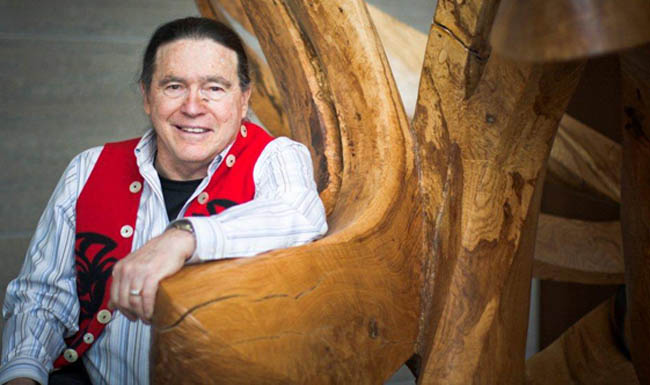A new day for Aboriginal researchers at Carleton

By Susan Hickman
Aboriginal academics are entering “a new day,” says John Kelly, co-director with Anna Hoefnagels of the Centre for Indigenous Research, Culture, Language and Education (CIRCLE), a day when academics are becoming full partners with Aboriginal communities.
With more than 40 faculty at Carleton directly involved in indigenous research, an administrative Strategic Integrated Plan that supports Aboriginal communities and aims to position Carleton as a university of choice for Aboriginal students, and the recent establishment of the Aboriginal Education Council, the university is becoming fully indigenized, says Hoefnagels.
“The seeds have been planted,” says Hoefnagels, “to make Carleton a more Aboriginal friendly and focused campus. CIRCLE has an important role to play in the transformation of Aboriginal study.”
CIRCLE grew out of the Centre for Aboriginal Education, Research and Culture (CAERC), founded in the 1990s to serve First Peoples communities, students and researchers. CIRCLE’s co-founders, Kelly and musicologist Elaine Keillor, amalgamated CAERC’s research arm, the Canadian Musical Heritage Society, the Centre for Canadian Cultures and Heritages, the Centre for First Peoples’ Music and Research and other organizations.
Carleton’s Centre for Aboriginal Culture and Education (CACE), which supplies Aboriginal student support services in conjunction with Equity Services, also originated with CAERC.
Today, CIRCLE facilitates the research of cultural expressions indigenous to Canada. This includes linguistic, dance, music and other materials of the First Peoples of North America, as well as the more recently arrived cultures that have developed uniquely Canadian identities.
Over the past decade, with government funding, CIRCLE has created such successful websites as www.native-drums.ca and www.native-dance.ca, which display photos, videos of original footage, and educational kits for elementary and secondary schools.
In 2010, the Path of the Elders website (www.pathoftheelders.com) was launched. A Cree culture and history adventure game, the Path of the Elders provides information about the James Bay Treaty (No. 9) signed in 1905 between northern bands and the governments of the day. Players must complete six goals – the paths of the Elders – to gain the skills to help re-negotiate the historic treaty in a manner that respects the rights, cultural identities and priorities of the First Peoples and all Canadians.
Three years ago, with funding from the Department of Canadian Heritage, CIRCLE members and others developed the First Encounters project (www.firstencounters.ca), an interactive game that puts the player in the role of explorers or Indigenous peoples to learn about specific time periods. A ground-breaking achievement resulting from more than a year’s research and development by many CIRCLE members, as well as the Canadian Studies program and the departments of History and Anthropology, the game provides an indepth look at life in 11th and 16th century North America and retells the story of first contact with Europeans.
CIRCLE members have provided assistance to the likes of Linguistics Prof. Marie-Odile Junker, editor-in-chief of the East Cree dictionaries, in her development of the language/culture resource websites www.eastcree.org, www.innu-aimun.ca and www.atlas-ling.ca.
Miranda Brady, who is on CIRCLE’s advisory board, says the group is going through a transition as its founders retire and new leaders come on board.
“It is an exciting time to revitalize the group and facilitate the community of scholars doing work in indigenous studies across campus and beyond,” says Brady, who focuses her research on indigenous identity in the media and social/cultural institutions.
Canadian Studies graduate Geraldine King, another advisory board member, helped organize the group’s first student conference in March. King was one of 18 presenters at the event – she discussed indigenous humour as a decolonizing practice.
About 60 indigenous and indigenist researchers from across Canada and abroad discussed projects and community initiatives under the theme, Praxis and Allies: Decolonization, Alliances and the Possibility of Space.
“The conference was quite a success,” says Brady. “We hope to do it again in the future.”
Since the conference, King continues to accumulate profiles of Aboriginal students on campus.
“There really needs to be a central organizing system to promote and highlight research being done. There is a sense of pride acknowledging their work. Other universities can come and see what we are doing and collaborate with us. You cannot put a price on the type of experience people can have when the right type of connections are made. I see CIRCLE evolving into a strong entity,” says King.
Adds Kelly, a Skidegate Haida from Haida Gwaii off the coast of British Columbia: “In a way, we have been waiting 500 years to be equal partners. It’s been a difficult road, but I am more optimistic for the future now than I have been in my entire life.”

